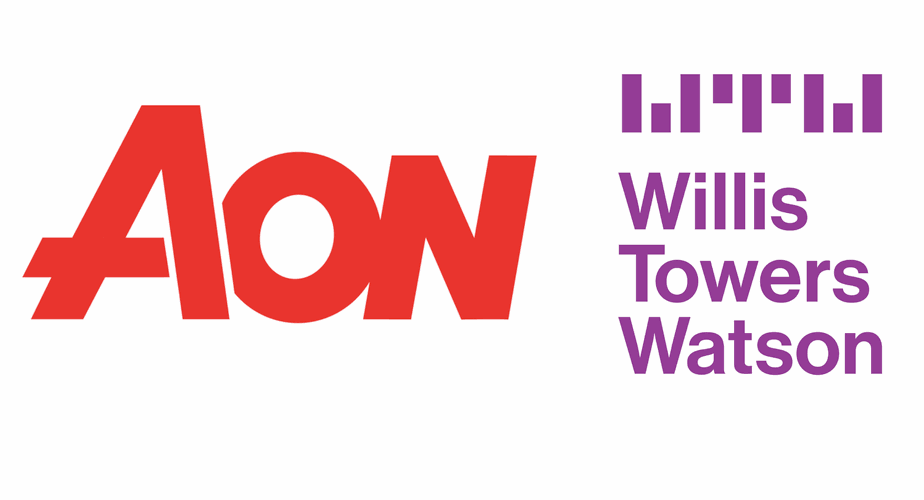 10-03-2021
10-03-2021
Aon / WTW: Sources expect Willis Re sale & divestment to near $1.8bn cap

 Insurance Alertss
Insurance AlertssAon / WTW: Sources expect Willis Re sale & divestment to near $1.8bn cap
Aon’s pending acquisition of rival Willis Towers Watson (WTW) continues to generate significant chatter in investor and analyst circles, with sources increasingly confident a sale of reinsurance broker Willis Re will be the likely outcome, if remedies are needed to get the merger through.
But divestitures are not seen as stopping with the reinsurance broking arm of Willis Towers Watson (WTW), as sources believe that remedies may need to go beyond this, into the corporate insurance broking space as well. Overall, the consensus of market sources we’ve spoken to in the last few days is that authorities are likely to require certain remedies, including divestments, in order for Aon to close on its acquisition of WTW.
As we explained recently, competition related concerns are rising, according to reports, with the European Commission said to be ready to raise antitrust concerns, as it is preparing a statement of objections, a charge sheet explaining potential competitive harm as a result of the mega-merger. Our sources suggest this statement of objections is likely to be delivered within the next week or two, as the EC competition team are said to be close to finalising it.
The Aon and Willis Towers Watson merger is attracting increasing amounts of attention, in particular from investors in the merger arbitrage and event driven hedge fund space. Which is also driving analyst interest higher as well, as they try to help their investor clients understand the opportunities associated with the arbitrage spread between the share prices.
Reinsurance broking unit Willis Re has always been one area of focus, as a potential divestment that could be required before authorities would allow the deal to complete. But investors had lately shifted some of their focus away from Willis Re, perhaps aligned with the initial responses of certain competition authorities that had moved the focus towards questions about large clients, verticals and regional divestments, rather than a global reinsurance division.
But over the last week or so this focus has shifted back, with increasing numbers of our sources saying they believe Willis Re being offered for sale is again the most likely source of significant divestment. The merger agreement includes a cap on divestitures, of $1.8 billion of revenue, which the sale of Willis Re will not get close to on its own, contributing somewhere around $1.15 billion of revenue, or so, to WTW in 2020, sources suggest.
Which leaves room for more divestments before the cap limit is hit, which would allow the merger agreement to be broken, if the competition authorities and regulators believe they are necessary. Therefore, an increasing number of sources in the investor community, focused on insurance and reinsurance, or on merger arbitrage, are confident that Willis Re will not be the only divestment or remedy required, for Aon to seal its acquisition.
Opinions on additional divestments seem to range from regulators requiring the sale of a global “package” of smaller corporate broking units, with regional focus seen as more likely to any line of business specific focus, to the sale of a large regional player such as Gras Savoye in France. Remedies and divestments, in such cases, need to be attractive acquisition propositions for competitors.
A sale of Willis Re would clearly be attractive to some, with Arthur J Gallagher still seen as the most likely acquirer should that divestment be required, although others definitely could do this deal (Howden Group, Lockton, TigerRisk, BMS, Beach, Holborn, Tysers, or perhaps even a private equity funded buyout, etc). We were previously told that an unsolicited direct approach to buy Willis Re had already been made late last year, but the price offered was considered to be at too low a multiple. A sale of a regionally important player like Gras Savoye would also be attractive to competitors it seems, although perhaps less attractive to sell given its position in the French market as a leader.
Hence, alongside a Willis Re sale, a global package, that reduces market dominance in key regions, while bringing together an attractive package of broking operations with a footprint that buyers would benefit from acquiring, does seem a possible way this could go, if the divestment cap is going to be neared. Still, as we’ve been saying all along, the focus has to be on price competition and whether bringing together Aon and WTW results in undue pricing power for the combined company, as this should be the crux of an antitrust objection. It’s still not clear that Aon would actually acquire any significant increase in pricing power, more than it already has today, in reinsurance, at least.
While in some areas of corporate broking, yes market dominance could be an issue, but whether that actually results in clear additional pricing power is less obvious, given how competitive large rivals like Marsh can be. In reinsurance, there is plenty of competition to fight Aon on price and the reinsurance broking sector is one that will become more price competitive over time anyway, we believe.
Brokers will be forced to modernise and commoditise how risk is ultimately matched with capital, that last mile of the placement relationship and the piece where the heavy-lifting is best undertaken by advanced technology, rather than people. That will leave reinsurance brokers to work out how best to monetise the rest of their value proposition in the reinsurance segment, so everything prior to syndication, matching of risk to capital and placement execution (which is a lot, a veritable menu of added value services during the lifecycle of a reinsurance broking client relationship year).
As we’ve also said, data becomes increasingly key as the reinsurance market modernises, as too will capital relationships (facilities, partnerships, dedicated capacity marshalled by brokers). Data is a competitive tool and Aon has a lot of it, which it has also taken care to structure well and worked out how to generate additional client services off the back of it. So, there’s a lot under the hood of this deal for competition authorities to get their heads around, not least the market dynamics driving a lot of changes through reinsurance right now.
All of these play into whether a Willis Re divestment is actually the answer, as a remedy to this merger (if remedies are indeed required). But, as we said, it increasingly seems to be the option the majority of our sources anticipate will be required. With questions remaining around what could also be necessary for the merger to complete.
Source: Reinsurance News
